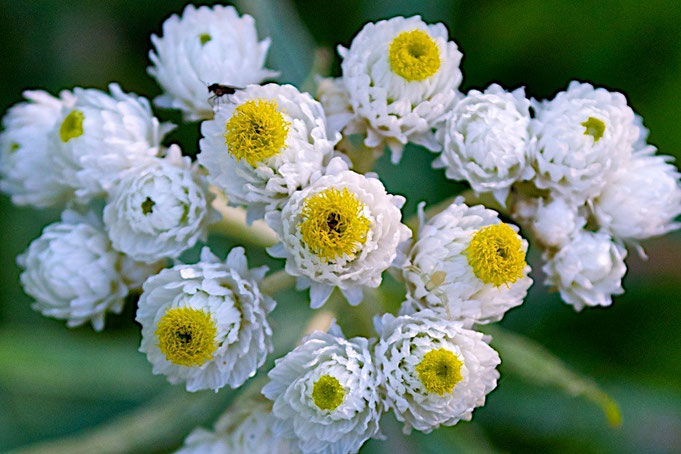Native Plants of Distant Hill
"Biological diversity is the key to the maintenance of the world as we know it." E.O. Wilson
Native Plants and Why are they so Important?
At Distant Hill Gardens we use a functional definition of "Native Plant" as opposed to a chronological or geographic definition. Instead of thinking of a native as one that grew here prior to a certain date, such as before European colonization, we like to think of a "native plant" as one that has evolved in this location long enough to be able to establish a specialized relationships with the ecosystem. It really doesn't matter how long a plant has been present. What matters is if a plant adds to the ecosystem of Distant Hill Gardens.
"Native" plants are important because of the direct connection between them and the insects, birds, and other wildlife that feed on them. In many cases native insects will not feed on non-native alien plants. This give the non-native plants an advantage over the native species in their survival. As the native plants are slowly replaced by alien species, many native insects will also begin decreasing in number. As a result, many of the birds that rely on these insects for food will also decline - an unending downward spiral.
A Bio-diverse Collection of Natives at Distant Hill

The large number of Natural Communities at Distant Hill makes for diverse collection of native plants and fungi.
Click a heading below to see a list of native plants with photos:
Plant ... A living organism that doesn’t move
Aristotle (384-322 BCE) placed all living things into two groups:
- Plants - which generally do not move
- Animals - which usually are mobile to catch their food
It has since been determined that the plant kingdom is more complicated and includes several other groups, like fungi, lichen and algae, that are not true plants. In an attempt to keep
things simple, we are using Aristotle's definition of a plant and include fungi, lichen, and algae in the lists above even though they are not now considered plants.
Distant Hill was listed as one of the Top 10 Places to Visit in New Hampshire!
Friends of Distant Hill (dba Distant Hill Gardens and Nature Trail) is a nonprofit,
tax-exempt organization under Section 501(c)(3) of the U.S. Internal Revenue Code.
Donations are tax-deductible as allowed by law. Tax ID# 84-3765898
or send a check via Snail Mail to:
Distant Hill Gardens and Nature Trail, 507 March Hill Road, Walpole, NH 03608


